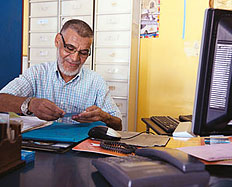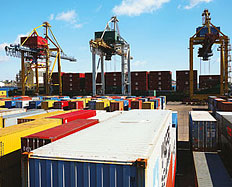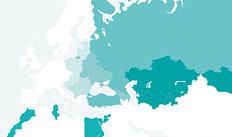Chapter 1
Executive Summary
The past year has been a difficult one for the transition region as growth weakened and the economic outlook worsened significantly. Nevertheless, there was no wholesale reversal of reforms, and progress has been made in some important areas. Policy-makers generally remain committed to the principles of markets and competition. Trade integration has been enhanced this year by the accession of Montenegro and Russia to the World Trade Organization. However, there is no sign of the major reform drive needed to boost growth rates towards their long-term potential.
A sectoral analysis of reforms and remaining challenges shows that most sectors across the region still face transition gaps that can be characterised as “medium” or “large”. The largest gaps are typically in Central Asia and other parts of the former Soviet Union, but significant gaps also remain in the more advanced countries in central and eastern Europe. Over the past year, there have been reform reversals in the energy sector in Bulgaria and Romania, both EU members, and in Kazakhstan, as well as a downgrade in Hungary in the natural resources sector. In all cases, the downgrades reflect growing state interference and a move away from market forces. However, important progress has occurred in other sectors – notably in the financial sector where local capital markets have developed further – as well as in certain transport sectors.
For the first time in the Transition Report, this chapter discusses the reform histories of the southern and eastern Mediterranean (SEMED) countries and considers their current structural and institutional development. The analysis indicates that the region is in “midtransition”; trade and capital flows in the SEMED region have been predominantly liberalised, and large parts of the economy are in private hands, albeit with important exceptions. However, while reforms carried out over the past two decades have improved the ease of doing business, market structure and institutional reforms need to be accelerated to enhance competitiveness, efficiency and productivity. Subsidies for basic foods and fuels tend to be more pervasive in SEMED distorting markets and placing heavy burdens on state budgets. At the sector level, power and energy stand out as the least reformed areas.







